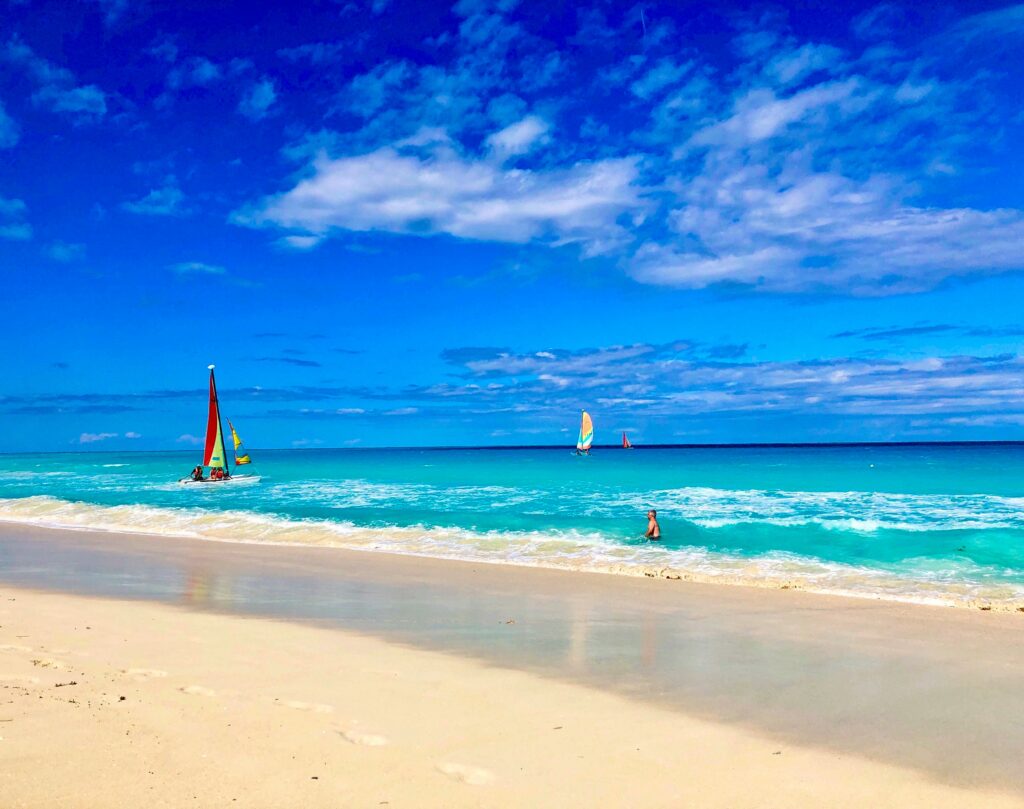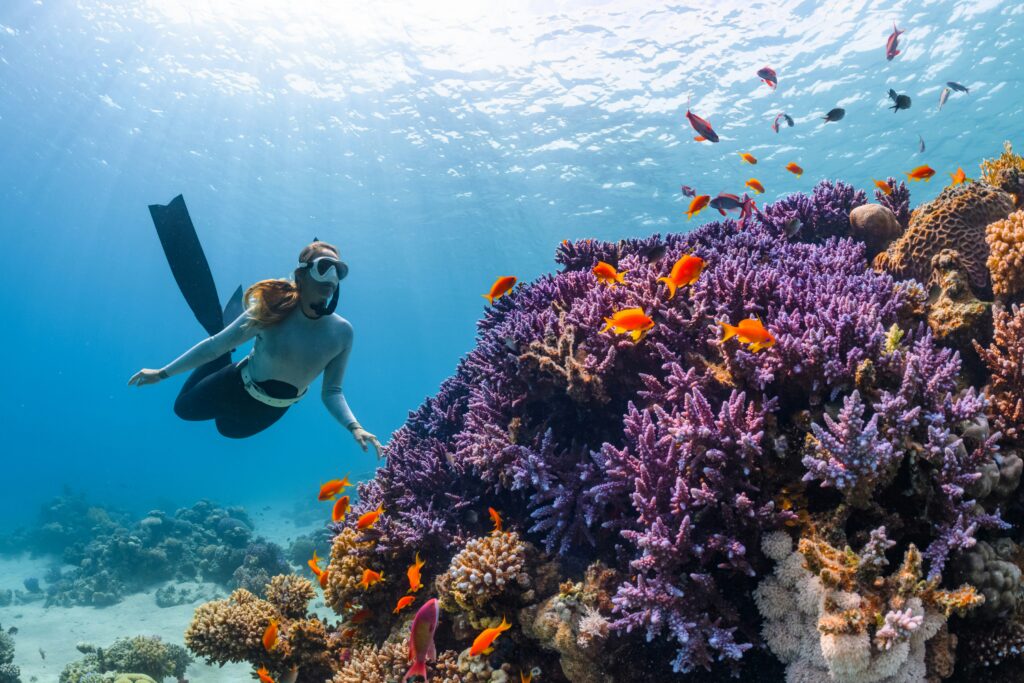
For those looking to travel and enjoy some time away from home, being close to the ocean is often a key requirement. As a result, blue tourism is also big business, representing 50% of all global travel. But with so many travelers flocking to the seas, mass tourism has contributed to overfishing, pollution, and coral reef degradation – meaning the same industry that benefits from pristine waters and thriving sealife has become a major contributor to our oceans’ degradation.
As a travel operator, embedding responsible and sustainable principles throughout your business isn’t only an ethical decision – it’s a necessary business imperative. As more and more travelers become aware of their environmental footprint and seek vacations that align with their eco-conscious values, tourism businesses must follow suit. After all, great coastal and ocean experiences depend on healthy marine ecosystems and safe waters.
Here, we’ll explore how you can integrate sustainability into your operations by prioritizing ocean health – which will also strengthen your reputation and help to secure long-term profitability.
Making smarter choices
Travelers are keen for greener vacations, with one report finding more than three-quarters of people actively seek sustainable travel. There are many small changes you can make to immediately help reduce your footprint as a tourism operator and attract such customers, and each adds up. Rather than trying to overhaul every part of your business immediately, you can begin making manageable changes and switching to a greener way of operating step by step.
Reduce plastic usage
Single-use plastics are a major contributor to ocean pollution, so a good first step is to eliminate plastic straws, bottles, and bags from your tours, cruises, or hotels. Instead, offer refill stations for water bottles, implement waste separation systems, and ensure recycling is available on-site or on-board.
Revamp your transport options
Transport accounts for a massive 49% of the tourism industry’s contributions to greenhouse gas emissions, so it’s well worth considering partnering with low-emission transport providers or investing in energy-efficient vessels, vehicles, and infrastructure. You could even encourage guests to offset their travel emissions through trusted schemes.
Support wildlife protection
Many tourists are drawn to wildlife experiences, both on land and in the sea. However, mismanagement and irresponsible expeditions into fragile habitats can damage the environment and be incredibly dangerous to marine ecosystems.
Whenever you take people into a natural environment, set a clear ‘no-touch, no-feed’ policy for all marine life encounters. Train your staff on best practice so they can guide respectful wildlife viewing, and look into supporting conservation projects such as turtle hatcheries or coral restoration.
Protect local communities
Healthy oceans and sustainable livelihoods go hand in hand, but unfortunately mass tourism can often be detrimental to small, local businesses and native communities. Be sure to work with local fishers, artisans, and guides to create community-based tourism experiences. You should also source seafood responsibly, and could even share some revenue with local conservation groups or non-profit marine protection organizations.
Prioritize sustainable supply chains
From food served on board a cruise ship to the cleaning products used in a coastal hotel, every part of a tourism business’ supply chain can potentially affect the ocean. Eco-conscious travel operators should be mindful of their suppliers – are ingredients sourced responsibly? Do they minimize single-use plastics in their packaging?
Asking questions such as these ensures that sustainability isn’t just a marketing ploy, but something you value in every aspect of your operations. Set clear sustainability criteria not only for your business, but for those you partner with, too.
Adopt responsible tour practices
Design your tours to limit disruption to natural ecosystems – by offering smaller group sizes, eco-certified boats, and responsible wildlife polices, you can help to protect fragile habitats while still offering unforgettable experiences.
Consider partnering with marine conservation organizations to help create excursions that educate your guests on ocean health while allowing them to witness its magic.
Educate your customers
Tourists themselves want to be part of the solution. As a travel operator, you’re in a respected position to be able to provide pre-trip sustainability briefings, share information on how guests can minimise their footprint while exploring independently, and use marketing materials to highlight environmental initiatives.
Many travel operators build loyalty by offering hands-on opportunities such as beach clean-ups, citizen science programs, or coral restoration projects. Providing education through storytelling, whether on the history of marine life, local communities, or local conservation challenges, can transform a standard trip into a meaningful journey for eco-conscious travelers.
Building a future-proof foundation
While the ocean is essential to many tourism businesses, it’s under pressure like never before. Travel operators have a unique opportunity to lead by example, showing that it’s possible to provide world-class experiences while preserving the marine environments that make those experiences possible.
Sustainability is not an optional extra – it is the foundation of a resilient and future-proof tourism business. By embedding these ocean stewardship into your everyday operations, you can not only protect a vital global resource but also invest in the long-term success of your eco-friendly business.
Sources
Sara
Would you like to subscribe to my newsletter? In English, I am using the LinkedIn newsletter. I want to use it because I understand more about who has subscribed via the LinkedIn profile. Here is the link: https://www.linkedin.com/newsletters/7107445901593313280/
